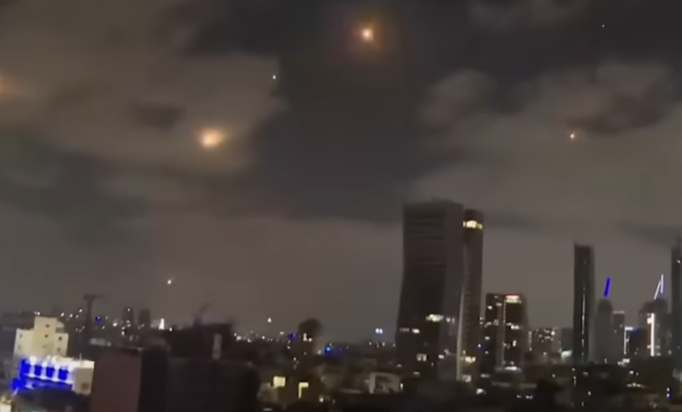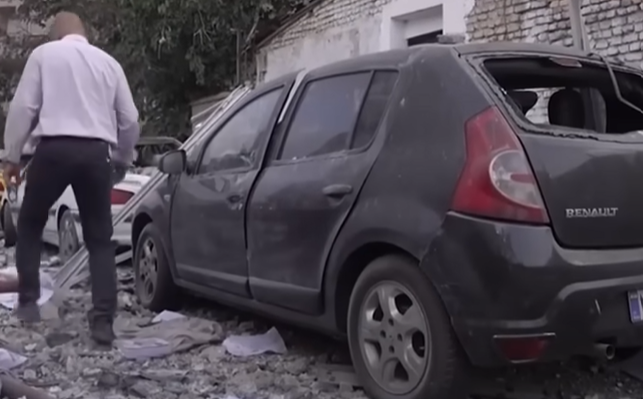Iran’s Khamenei Warns of ‘All-Out War’ as Israel-Iran Conflict Reaches Dangerous New Heights
By David LaGuerre –
Iran’s Supreme Leader Ayatollah Ali Khamenei’s stark warning that U.S. military involvement would bring “irreparable damage” and trigger an “all-out war” represents more than diplomatic posturing. It’s a desperate plea from a regime under unprecedented assault, facing the most direct existential threat in its 46-year history. As explosions continue to rock Tehran and Israeli jets dominate Iranian airspace, we’re witnessing what many experts believe could be the final chapter of the Islamic Republic’s nuclear ambitions.
When Decades of Shadow War Became Open Conflict
The current crisis didn’t emerge from nowhere. What began as Israel’s “Operation Rising Lion” on June 13, 2025, represents the culmination of decades of escalating tensions between two regional powers that once called each other allies. According to USA Today’s comprehensive timeline, Israel’s surprise attack targeted the very heart of Iran’s nuclear program, killing nearly the entire top echelon of Iran’s military commanders and leading nuclear scientists.
The human cost has been staggering. Iranian state media reports more than 220 Iranian civilians and military personnel have died since the bombardment began, with over 1,200 injured. Israeli officials confirm 24 Israelis have been killed in retaliatory missile attacks. Behind these numbers are families torn apart, children who’ve lost parents, and communities living in constant fear of the next air raid siren.
What makes this moment particularly heartbreaking is how preventable it all feels. As The New York Times explains, this conflict represents the breakdown of decades of diplomatic efforts to contain Iran’s nuclear ambitions through negotiation rather than warfare.




The Nuclear Crisis That Sparked Open War
The immediate trigger for Israel’s preemptive strike centers on Iran’s uranium enrichment program. According to the International Atomic Energy Agency, Israel’s attacks have destroyed centrifuge production facilities and significantly damaged Iran’s primary uranium enrichment site at Natanz, where roughly 15,000 centrifuges were operating.
This represents a devastating blow to Iran’s nuclear capabilities. As Britannica’s analysis notes, Iran had stockpiled enough enriched material by early 2023 to produce a nuclear weapon in just 12 days. Israeli officials claim Iranian scientists were potentially months away from completing their first nuclear weapon.
The timing of Israel’s attack reflects a painful irony. President Trump had initially asked Israel to hold off on strikes while his administration pursued a new nuclear deal with Iran. When those negotiations faltered in June and Iran sought to ramp up uranium enrichment, Israel felt compelled to act before the window closed forever.
What’s particularly tragic is remembering how close we came to preventing this crisis. The 2015 Joint Comprehensive Plan of Action would have delayed Iran’s nuclear weapon capability by at least a decade. But when the U.S. withdrew from that agreement in 2018, Iran began stepping back from its commitments. Now, instead of managing this challenge through diplomacy, we’re watching it play out through devastating warfare.
Trump’s Dangerous Escalation Rhetoric
President Trump’s demand for Iran’s “unconditional surrender” and his threat that Supreme Leader Khamenei is “an easy target” represents a dramatic escalation in American rhetoric. As NBC News reports, Trump is actively considering U.S. military strikes against Iran, potentially using the massive “bunker buster” bombs needed to reach Iran’s deep underground nuclear facilities.
Khamenei’s response reveals both defiance and desperation. In his televised address, Iran’s leader dismissed Trump’s threats as “threatening and ridiculous,” while warning that “any U.S. military intervention will undoubtedly cause irreparable damage.” But beneath the tough rhetoric lies a regime that’s increasingly isolated and vulnerable.
The human dimension of this escalation cannot be ignored. When Trump talks about making Khamenei “an easy target,” he’s discussing the potential assassination of a foreign leader, an act that would almost certainly trigger massive retaliation against American interests and allies throughout the region. The families of American service members stationed across the Middle East deserve better than reckless threats that put their loved ones at risk.
Critics argue that Trump’s approach abandons the measured diplomacy that has traditionally characterized American foreign policy. Former Obama administration officials point out that even at the height of Cold War tensions, American presidents rarely made such explicit threats against foreign leaders. This rhetorical escalation makes de-escalation infinitely more difficult and increases the risk of miscalculation.
The Regional Stakes and Global Implications
What happens in Iran doesn’t stay in Iran. This conflict threatens to reshape the entire Middle East power balance, with implications stretching far beyond the region. As Al Jazeera’s live coverage documents, explosions continue to rock Tehran while air raid sirens wail across Israeli cities.
Russia, Iran’s key ally, has already warned against U.S. intervention, with Deputy Foreign Minister Sergei Ryabkov calling potential American military support for Israel “a step that would radically destabilize the entire situation.” China, deeply invested in Iranian oil, watches nervously as energy markets spike with each new escalation.
For ordinary Iranians, the impact extends far beyond the immediate violence. Internet restrictions have been imposed, international phone calls are blocked, and the economy faces new pressures just as sanctions were beginning to ease. In Tehran’s neighborhoods, residents describe an eerie, post-apocalyptic atmosphere as many flee the capital.
The humanitarian implications are staggering. Iran’s 84 million people find themselves caught between an increasingly authoritarian government and devastating external attacks. Many Iranians oppose their government’s policies but don’t want to see their country destroyed. They deserve our compassion and support, not collective punishment.
German Chancellor Friedrich Merz’s comment that Israel is doing “dirty work for all of us” reflects how European allies view this conflict, but it also highlights the uncomfortable reality that other nations are effectively outsourcing military action to Israel rather than taking responsibility themselves.
The Path Forward: Hope Amid Devastation
Despite the current devastation, diplomatic solutions remain possible. Iran’s nuclear program, while advanced, hasn’t yet crossed the threshold to weapons production. The infrastructure damage, while significant, isn’t irreversible. Most importantly, both sides have strong incentives to avoid the mutual destruction that all-out war would bring.
What’s needed now is exactly what seems most unlikely: courageous leadership willing to step back from the brink. This means Iran accepting verifiable limits on its nuclear program in exchange for sanctions relief and security guarantees. It means Israel accepting that Iranian nuclear technology, properly monitored, needn’t pose an existential threat. And it means Trump embracing the patient diplomacy that has historically defined American leadership.
The international community must also step up. European allies, Arab states, and other stakeholders cannot simply cheer from the sidelines while Israel bears the burden and risks of containing Iran’s nuclear program. A comprehensive regional security framework, involving all major players, offers the only sustainable path toward stability.
For the families mourning loved ones in both Iran and Israel, for the children hiding in bomb shelters and basement safe rooms, for the parents wondering if their neighborhoods will be targeted next, the priority must be ending this violence as quickly as possible. Every day this conflict continues increases the risk of irreversible escalation and needless tragedy.
The Iranian people’s courage in facing both authoritarian rule and external bombardment deserves our admiration. The Israeli families living under constant threat of missile attack deserve security and peace. Both peoples deserve leaders wise enough to choose negotiation over annihilation.
This crisis will ultimately be resolved through dialogue, compromise, and mutual recognition of shared humanity. The only question is how much destruction will occur before wisdom prevails. For all our sakes, and especially for the families caught in this conflict’s crossfire, let us hope that moment comes soon.
What are your thoughts on how this crisis should be resolved? Share your perspective in the comments below, and don’t forget to share this analysis with others who need to understand these critical developments.




